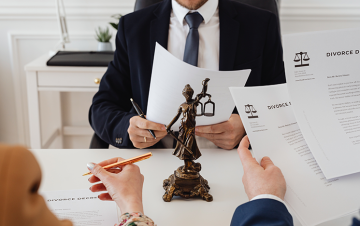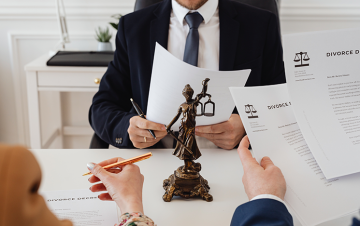What is the legal difference between possession and manufacture of drugs?
The classification of actions in drug-related cases is crucial in determining the severity of punishment. Possession and manufacture of drugs are extremely serious crimes, but each has its own characteristics and consequences. Criminal liability for drugs applies in both cases, but the degree of liability and the judicial process depend on how the person's actions are classified.
A person has or stores narcotic drugs — Article 309 of the Criminal Code
If a person has or stores narcotic substances but does not distribute them, such a violation falls under Article 309 of the Criminal Code. Given the lack of impact on the public, this crime is considered less serious, but it still often entails criminal liability. In these circumstances, it is important to consult a specialist, such as a drug lawyer, who can assess the details of the case, identify possible violations by law enforcement agencies, and develop an effective defence strategy.
A person who creates drugs by their actions under Article 307 or Article 313 of the Criminal Code
A person who manufactures or synthesises narcotic substances may be held liable under Article 307 or 313 of the Criminal Code, depending on the specific circumstances: the presence of a purpose to sell, illegal circulation of specialised equipment, etc. In such cases, it is important not to delay, as the application of administrative liability by a judicial authority is not even considered. A drug lawyer will help to correctly qualify the actions, verify the legality of the investigation and protect the rights of the suspect at all stages.
What is the difference between punishment for possession and manufacture of drugs?
Suspicion in drug cases requires urgent referral to a qualified specialist; in complex situations, a lawyer plays a key role. Manufacturing and possession of drugs involve different classifications and, accordingly, different levels of punishment: while possession without the intent to sell (309 of the Criminal Code) may result in administrative liability, possession with the intent to distribute drugs (307 of the Criminal Code) is punishable only by criminal penalties. The manufacture of drugs, especially for the purpose of sale, is punished much more severely — most often with long-term imprisonment.
How exactly do our lawyers help in drug cases?
Legal assistance in drug cases is extremely important, as the defence lawyer understands the specifics of such cases and helps to protect the client's rights in the following ways:
- Protection at all stages: from consultation to court hearing.
- Verification of the legality of the investigation and identification of procedural violations.
- Preparation of a defence strategy, including the collection of evidence, analysis of testimony and involvement of experts.
- Negotiations with the investigating authorities to mitigate liability or reclassify the case.
- Filing complaints, appeals, and statements about illegal actions by law enforcement officers.
Every detail in such cases must be taken into account, as they influence the final decision of the court. Therefore, the support of a lawyer must be timely and professional — in this case, the client's rights will be protected as much as possible.
Real experience in cases under Articles 307, 309, 313 of the Criminal Code.
Our lawyers have practical experience in cases under Articles 307, 309 and 313 of the Criminal Code, which together cover all crimes related to narcotic substances. Our lawyers have repeatedly provided successful defence in drug cases, both during pre-trial investigations and at court hearings, achieving a reduction or dismissal of charges, suspended sentences or the most lenient sentences possible. Our specialists approach each case individually, taking into account all the details and circumstances.
Confidentiality and efficiency.
In drug cases, professional lawyers guarantee complete confidentiality — no information will be disclosed to third parties. In addition, our team acts promptly after the first contact, ensuring a quick legal response: arrival at the place of detention, communication with law enforcement agencies, and further defence of the client. We understand how important trust and speed are in such cases, so we guarantee this at every stage.
High percentage of positive decisions (suspended sentences, acquittals, case dismissals)
Our lawyers have numerous successful cases in drug-related matters, as evidenced by numerous examples from practice:
- Probation instead of imprisonment, even without mitigating circumstances.
- Full acquittal of the client when evidence of procedural violations was collected.
- Termination of criminal proceedings at the pre-trial stage due to an effective defence strategy.
- Reclassification of the crime to a less serious offence, which allowed the client to avoid imprisonment.
We work to achieve results — reducing the risk of legal consequences and achieving the most favourable outcome for the client.
What to do if you are found with drugs and accused of manufacturing them?

Do not sign anything without a lawyer: You have the right to remain silent and demand legal assistance. Any explanation without a lawyer can be used against you.

Stay calm and do not resist: Aggression or attempts to hide something can complicate the situation and affect the qualification of the crime.

Contact a lawyer immediately: The sooner a specialist starts working, the more chances you have to avoid excessive punishment or prove your innocence.
Conclusion - do not risk your freedom, contact a lawyer!
Independent actions in cases related to drugs often lead to serious legal mistakes. A professional lawyer will assess all the circumstances, prepare a defense strategy and do everything possible to ensure that the client avoids punishment. Protect yourself - act with the support of a specialist.








































